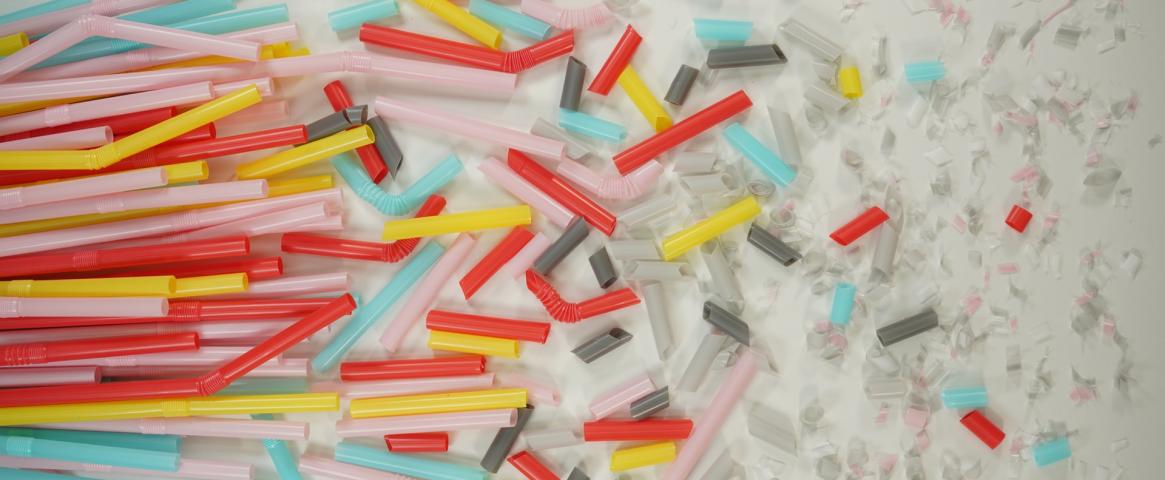By Yvonne Phan
Microplastics — fragments of plastic 5mm or smaller — are in everything we eat, and their harsh chemicals may be impacting sperm quality in men.
These tiny fragments come from bigger plastics that break down into microscopic pieces which seep into water supplies, seafood, and packaged foods. A literature review published in the International Journal of Environmental Research and Public Health suggests that ingested microplastics can lead to decreased sperm quality and sperm counts in humans.
The literature review summarized the changes in sperm quality in recent decades and the implications of new studies about microplastics in humans and animals. Male infertility has been rising since the 1940s, as semen quality has decreased. Meanwhile, since the 1950s, global plastic production has increased from 1.5 million tons to 335 million tons in 2016, leading to a significant increase in microplastics.
According to a 2021 Nature article, some researchers believe that the amount of microplastics in the environment is not enough to impact human health. However, some researchers are convinced that reduced sperm count and sperm quality in humans is related to the increased microplastic pollution in water and food, and human autopsy studies have found microplastics in human placentas and posthumous liver and fat tissue samples.
While studies in humans have been inconclusive, due to ethical reasons, lab mice have provided some evidence of the link between microplastics and male infertility. In a study where mice’s water supplies were exposed with different amounts of polystyrene microplastics for 35 days, researchers found that mice who were exposed to microplastics had lower sperm counts than a control group who were not exposed.
The sperm of the mice who received the highest dose of microplastics also had significantly more abnormalities than the sperm of the mice who were not exposed. For example, some of the sperm had two tails, or visible swelling on its head.
Harmful chemicals in microplastics may accumulate in various organs, including the testes, where sperm is created. Upon examination, the cells in the testes of the exposed mice were arranged abnormally, while the cells of the control group mice were dense and neatly arranged. In addition, there were less spermatids (sperm producing cells) in the testes of the exposed mice than the control group.
Worldwide, the average person consumes about 5 grams of plastic per week through food and water, according to a 2019 report from the University of Newcastle Australia. In Lebanon, 97 percent of tap water samples contained microplastics. U.S. samples contained 94.4 percent and India’s contained 82.4 percent. They also reported significant amounts in samples from Europe, Indonesia, Uganda, Ecuador, and Uganda. The study determined that the average person may consume up to 1,769 particles of microplastics from drinking water each week, not counting other foods or beverages.
Dr. Ranjit Ramasamay, a urologist and clinical director of Male Reproductive Medicine and Surgery at the University of Miami says that the decline in male fertility is multifactorial. “A large part of it may be due to health reasons such as obesity, poor diets, increasing prevalence of substance use, and environmental toxins, but we still can't say for sure what the precise reasons are. It's also important to note that as more men are seeking to have children later in life, we are inevitably going to see declining sperm parameters from this older group”.
Although research has yet to confirm that microplastics are causing human male infertility, Dr. Ramasamay mentioned that he has witnessed an increase in patients who seek his advice for fertility issues. He acknowledged that it may be due to his practice expanding and that couples are becoming more interested in new technological improvements in reproductive healthcare. Still, “...the data is consistent that semen parameters are declining overall,” he said.
This story was produced as part of NASW's David Perlman Summer Mentoring Program, which was launched in 2020 by our Education Committee. Phan was mentored by Shel Evergreen.
Hero image by FLY:D on Unsplash.




